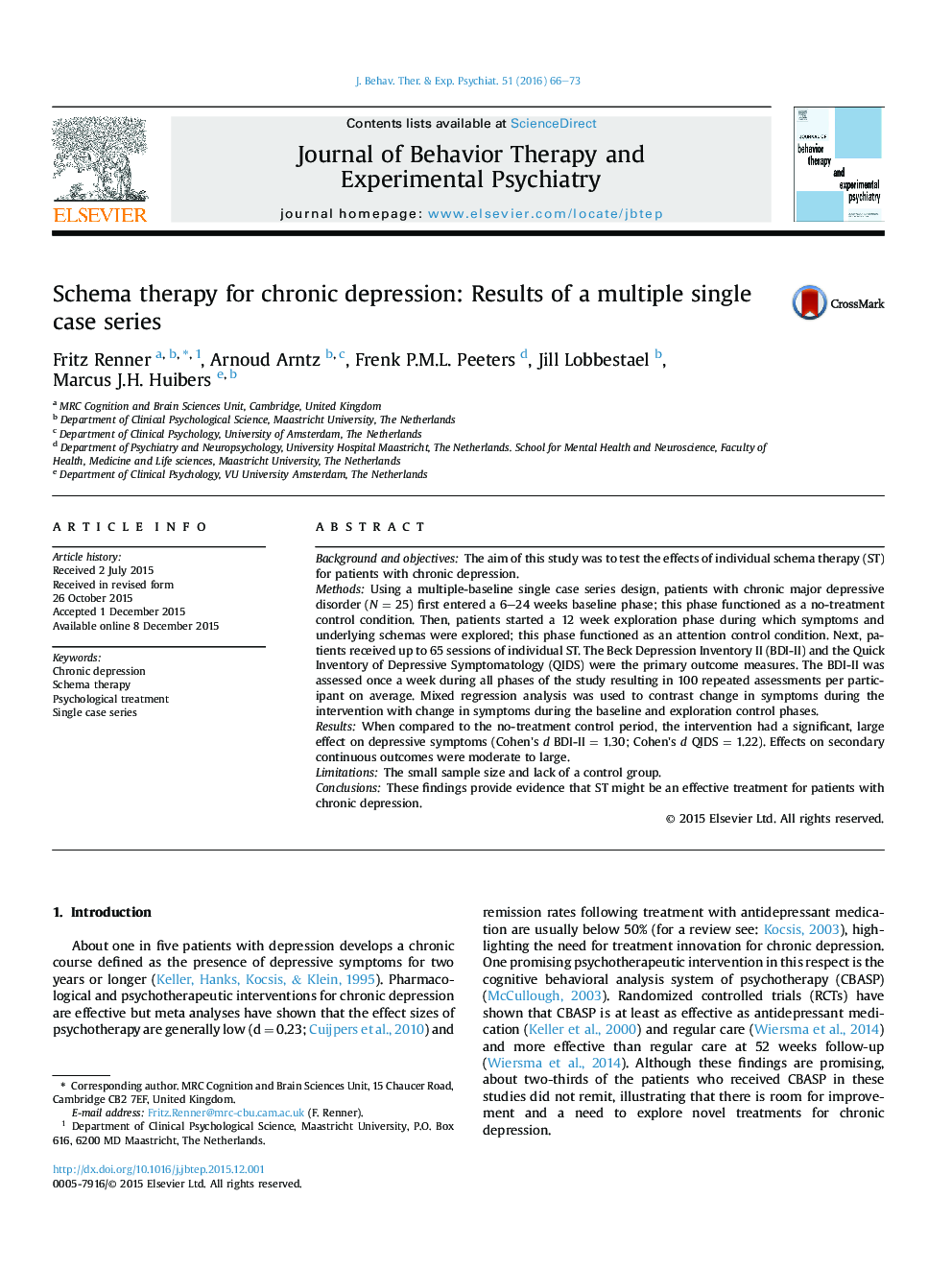| Article ID | Journal | Published Year | Pages | File Type |
|---|---|---|---|---|
| 910268 | Journal of Behavior Therapy and Experimental Psychiatry | 2016 | 8 Pages |
•We examined individual schema therapy in adults with chronic depression.•Schema therapy was associated with large decreases in depressive symptoms.•Schema therapy was associated with large improvements in overall wellbeing.•Response to treatment was 40%, 35% remitted and 67% recovered.
Background and objectivesThe aim of this study was to test the effects of individual schema therapy (ST) for patients with chronic depression.MethodsUsing a multiple-baseline single case series design, patients with chronic major depressive disorder (N = 25) first entered a 6–24 weeks baseline phase; this phase functioned as a no-treatment control condition. Then, patients started a 12 week exploration phase during which symptoms and underlying schemas were explored; this phase functioned as an attention control condition. Next, patients received up to 65 sessions of individual ST. The Beck Depression Inventory II (BDI-II) and the Quick Inventory of Depressive Symptomatology (QIDS) were the primary outcome measures. The BDI-II was assessed once a week during all phases of the study resulting in 100 repeated assessments per participant on average. Mixed regression analysis was used to contrast change in symptoms during the intervention with change in symptoms during the baseline and exploration control phases.ResultsWhen compared to the no-treatment control period, the intervention had a significant, large effect on depressive symptoms (Cohen's d BDI-II = 1.30; Cohen's d QIDS = 1.22). Effects on secondary continuous outcomes were moderate to large.LimitationsThe small sample size and lack of a control group.ConclusionsThese findings provide evidence that ST might be an effective treatment for patients with chronic depression.
